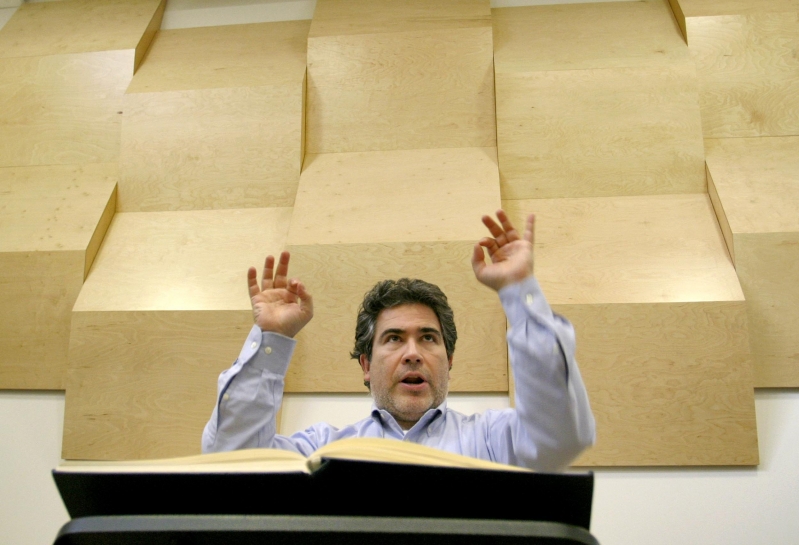
Welsh National Opera returns to the stage in Autumn 2021 and what better way than with a new production of Madam Butterfly? Our creative and artistic teams are busy building, making and rehearsing the production and we are all looking forward to returning to what we do best - performing live opera.
WNO Conductor Laureate Carlo Rizzi knows Puccini’s tragic opera well. Here he shares with us what it means to him to work on one of the composer’s greatest operas.
I have conducted Madam Butterfly many times in my life and will never tire of doing so. Why? Because the way that Puccini paints Butterfly with his musical strokes is so honest, unequivocal and clear that it will always feel modern and relevant to me. In the many different productions that I have conducted every stage director has underlined this or that particular aspect of Butterfly’s personality: the young girl looking up to the ‘saviour’ Pinkerton, the abandoned woman and single mother, the shameful person that kills herself because she could not keep ‘honour’ in her life.
Already in these three aspects of Cio-Cio-San’s character, we can see how real and relatable the themes of this drama are and how much they might particularly speak to each new generation of opera-goer.
But I would like to share with you why, as a musician, I find this opera so emotionally powerful and satisfying. The truth is that everything that we have ever seen underlined in any production is already there, given to us firstly through the music. Consider the heartbreaking, simple phrase of the first act duet, with just a violin solo and a few instruments accompanying, that introduce the words of Butterfly ‘Vogliatemi bene, un bene piccolino, un bene da bambino’ (Love me with a small love, like you love a child): this is a Butterfly who, though afraid to let herself go, gives herself entirely to Pinkerton. There can be no doubt, as we listen to this music, that for her this is true love and that in total trust, she is committing everything.
Then, moving forward to the second act, when she storms out and returns with the child, screaming at the Consul ‘e questo? E questo? Questo potrà forse scordarlo?’ (and this one? And this one? Perhaps he will also forget his son?), Puccini does not choose convoluted harmonies that might well describe the suffering of a mother but gives us, instead, a strong arpeggio in C major with trumpets and the rest of the orchestra. This is the music of challenge, it is assertive music, portraying a woman who will take a stand against everybody, proudly showing the fruit of the love of the first act.
And, in the third act, I always feel a chill in my spine when I conduct the words of Butterfly to Kate Pinkerton ‘A lui lo potrò dare, se lo verrà a cercare’ (I will give the child to him but only if he will come to look for him). She will not give her child to the woman that has entered her world without having been invited and she firmly pushes her away. Butterfly’s singing here is underlined by heavy chords that speak of a march to execution. Puccini signals that she has understood that the only way to offer a better life to her child is to disappear. It is the proud love of a mother, not the shame of abandonment that leads her to kill herself. All this is in the musical score. This is artistry of music that tells stories and reveals characters; this is the magic of Puccini that I hope to share with you.



